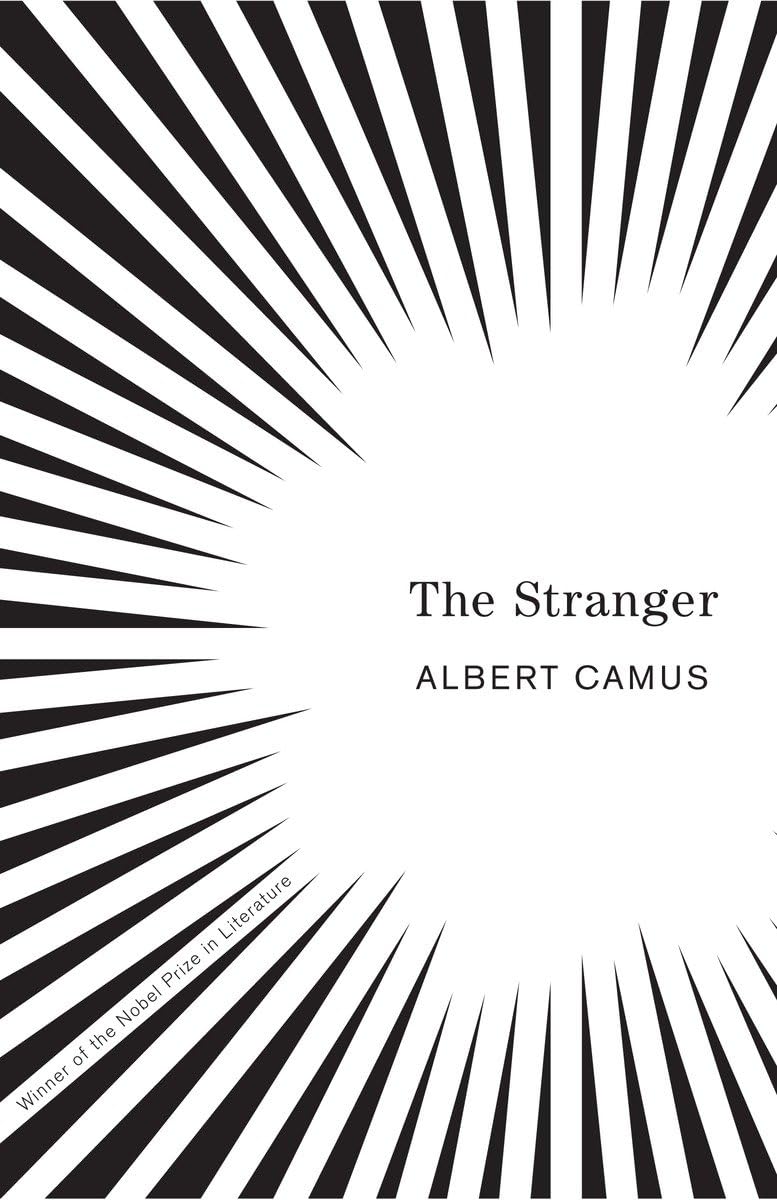The Stranger
Albert Camus
BOOK REVIEW

Albert Camus' The Stranger is not merely a novel; it's an unsettling exploration of existence that forces you to confront your own sense of morality and humanity. At its core, this work is a profound meditation on the absurdity of life, wrapped in the chilling narrative of Meursault, a man who embodies the essence of emotional detachment. It implores you to delve into the darker recesses of your existential consciousness, casting a spotlight on the stark contrast between societal norms and the individual experience.
From the moment you meet Meursault, an indifferent and lethargic man whose mother has just passed away, you're plunged into a world devoid of conventional emotions. Camus masterfully unravels the internal monologue of Meursault, revealing a protagonist who is unapologetically apathetic-a man who doesn't cry at his mother's funeral, who speaks with a dull monotony about life's events, and who ultimately confronts a murder trial that seems more focused on his emotional response than the act itself. This narrative raises unsettling questions about the nature of existence itself: what does it mean to truly feel? Can one be condemned not for their actions, but for their indifference?
Set against the backdrop of 1940s Algeria, The Stranger reflects a world grappling with the chaotic aftermath of World War II. The absurdities of the human condition are magnified by the sociopolitical landscape that shaped Camus' experiences and philosophy. In a post-war era rife with existential dread, Camus' writing resonates with a generation struggling against absurdity-questioning life's purpose while confronting the threads of reality and the fleeting nature of human emotions.
Readers are often polarized by Meursault's character. Many find him frustrating-an empty vessel unable or unwilling to engage with the world around him. Others see him as a mirror reflecting the absurdity of existence, compelling us to take a hard look at our own choices and emotional responses. It's this precise duality that drives discussions around the book; it's a challenging read that demands introspection. Critics argue whether the novel is a critique of societal norms or a broader commentary on human alienation.
In an age where we constantly grapple with our emotions in an increasingly connected world, Camus' work taps into that collective fear of disconnection. How often do we mask our true feelings in pursuit of societal acceptance? Do we lose our authenticity in a bid to conform? Meursault's emotional isolation is a haunting reminder that sometimes, the weight of our indifference can be heavier than we care to admit.
In the throes of Meursault's trial, the courtroom becomes a symbol of societal judgment, where his lack of grief is scrutinized more than the crime he committed. Here, Camus launches a biting critique of the absurdity of justice itself-how often do we judge others based on our own flawed perceptions? This novel forces readers to confront the uncomfortable truth that we are often our own worst judges, and societal norms can suffocate the individuality that should define us.
The Stranger has influenced myriad artists, philosophers, and writers, embedding itself in the fabric of modern literature and existential thought. Figures such as Jean-Paul Sartre and Philip K. Dick grapple with ideas that echo Camus' explorations of absurdity and freedom. Their works often reflect a struggle against the confines of normative society, questioning the very essence of what it means to exist and be truly free.
As you turn the last page of The Stranger, you're left with a resounding echo of Camus' existential challenge: what will you choose to do with your freedom? Will you embrace the absurdity, find meaning beyond conventional societal expectations, or will you allow indifference to reign? The haunting silence of Meursault's journey reverberates long after the conclusion, leaving you to ponder the immense weight of your own existence.
This isn't just a book; it's a wake-up call that demands to be felt, understood, and ultimately, lived. Are you ready to confront the stranger lurking within?
📖 The Stranger
✍ by Albert Camus
🧾 123 pages
1989
#stranger #AlbertCamus